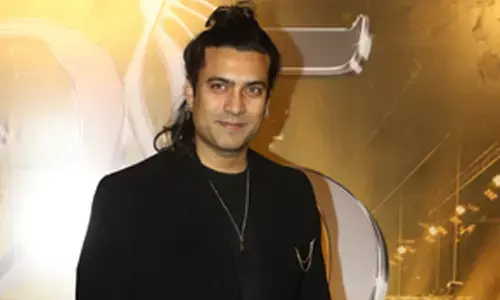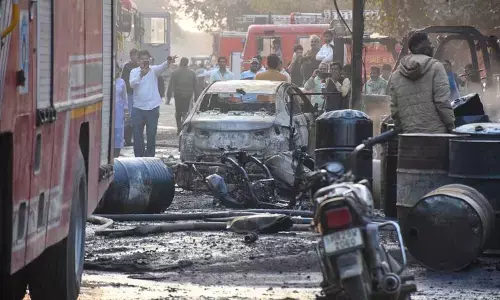Indian judiciary stepping into a new direction

Indian Judiciary Stepping into a New Direction. Nevertheless, the collegium has been insulating the judiciary from political influence in affairs of appointment and elevation and transfer, securing the independence of judiciary to great extent in the previous regime.
The Modi government’s enactment of 99th Constitutional Amendment to create a National Judicial Appointment Commission seems to have been enacted considering the political imperatives which may bring about serious ramifications in designing the secular fabrics of the country and its vibrancy as a liberal polity. The mechanism of the commission speaks the language of engulfing the judicial autonomy as enshrined in the Indian constitution.
The structure of commission sheds the light of its objectivity. The new commission consists of Chief Justice of India, two next senior most judges, the Law Minister and two eminent persons-chosen by the Prime Minister, the Chief Justice and the Leader of the Opposition in the Lok Sabha. The commission is to recommend persons for appointment judges such as Chief Justice and other judges of the Supreme Court and the High Courts.
The collegium- system enacted since 1992- has been serving in appointment of judges giving the government a space for considering its view but securing last decision in its hand. Keeping in view the tug of war in power supremacy, the Supreme Court agreed that it would consult the government but needn’t its concurrence; resultantly it had accepted the role of government in evaluating the efficacy of judges to be appointed in courts.
Nevertheless, the collegium has been insulating the judiciary from political influence in affairs of appointment and elevation and transfer, securing the independence of judiciary to great extent in the previous regime. The Congress leaders were never having any political aspiration in which the Supreme Court was putting any hindrance except few incidences.
Towards achieving the goal, the government is going to table the second Bill ascertaining the procedure of evaluation of the ability in appointment of judges. It is not hesitating to say that judicial independence is not going to be compromised. At first glance, it sounds good; as go closure it speaks a different language of aggrandizement. The procedure suggested that if any two members don’t agree on a candidate, the appointment cannot reach its conclusion. Thus, the voice of three judicial members has no effect if two remembers are not agreed to the very approach in selection. Nobody can escape from the reality that this conditionality will create a lot of problems to bring consensus among the members as the judiciary needs a lot of judges; naturally compromise will be made and it will open the gates for judges under influence of the government.
In the complex system, appointment of two members will also play pivotal role rather determinative ones. As the three authorities will play the role in selection of the two members are the Chief Justice of India, the Prime Minister and the Leader of the opposition, the Chief Justice can be outvoted by the rest ones. It would have served the purpose, if the amendment had provided a clause that no appointment holds legality without the consent of the Chief Justice. The second point is that the eminent persons chosen predominantly by the Prime Minister and Leader of the Opposition will have bureaucratic approach which is at variance with the desired approach in judicial members.
The proposed procedure is suffering from serious limitation in terms of evaluating the required judicial analytical abilities of every prospective appointee. In order to ascertain their abilities and merits, they need to be interviewed.
The subject needs to be understood to evolve right mechanism to serve the purpose so as to ensure competent judges are appointment in the nation’s most prestigious body. Another things is that the judicial authorities are under serious pressure owning to outnumbers of cases pending before them. For making justice in evaluating the abilities and merits from all required perspective is not going to feasible by sitting judges. That is why the commission desperately needs a fulltime dedicated of retired judges heading by the Chief Justice so that all required parameters of evaluating the abilities of judges are performed in systematic way.
The Modi government seems to have been persuaded to go ahead the 99th Constitutional Amendment to get a special authorities appointed in the courts to order to fulfill the dream of his party aspirations. In a polity like India anything can be done as voice of the people is supreme. There are some established mechanisms that safe, legal and ethical and that ensure sustainability, and some are fraught with serious risks and repercussion.
The political corridor seems to have shown that it is going to make the same mistake that previous Vajpayee’s government did. He had wanted to fulfill the political imperative above the people’s aspiration. Had he transformed India into developed polity in terms of economy and human abilities, the people across of faith would have supported his political ambitions.
If Mr. Modi learned from his mentor’s mistake and tried to develop India by improving economy, taking concrete steps to curb corruption and unemployment, giving India a prestige on world level as it enjoyed in Indira era, he would get endless term and on the ground of his past endeavor, people would stand with him in fulfilling his political ambitions crossing the religious and ethnic barriers.









